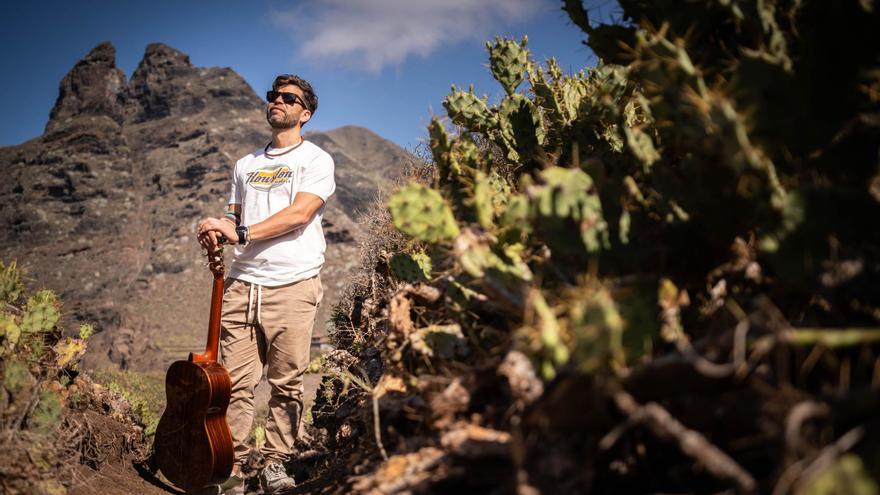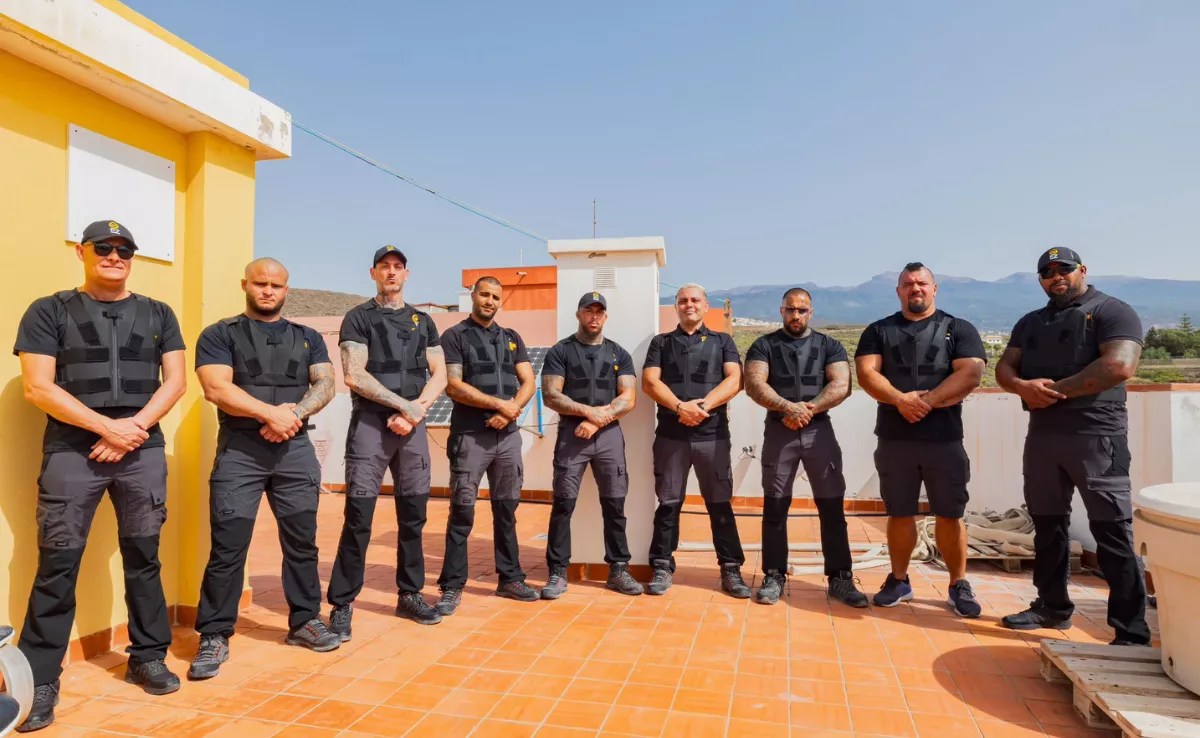
A young football enthusiast who sings in a reggae group about his homeland and love. The description could perfectly match Bob Marley, but in this case, it’s about Jonathan Gutiérrez, a member of the oldest active reggae group in the Canary Islands. What makes his story unique is that for the past five years, he has been balancing rehearsals and concerts with his political duties as the deputy mayor of the Arafo City Council and councillor for Road Infrastructure, General Services, Sports, and Leisure Time for the Independent Group of Arafo and Coalición Canaria.
With a father from Tenerife and a mother from Arafo, after 28 years of Eclipse Reggae, the singer has become a vital figure in the genre in the Islands. The southern municipality has always been intertwined with music. Evidence of this is the two bands with over 100 years of history in a place with just six thousand inhabitants. Even though the artist hasn’t performed in the area since taking up public office, he felt it was his duty to uphold its tradition.
They excel at patron saint festivals and festivals in the Archipelago, having not only performed on seven of the eight islands, with the exception of La Graciosa but also captivated audiences in the Basque Country and Madrid. In the latter location, they were the opening act for Macaco when he released the song Love is the only way, as the popular vote placed them among the top three bands nationally. “We were in shock, feeling like it wasn’t our place, yet we greatly enjoyed a unique experience,” he explains. Another major milestone was performing in Santa Cruz alongside The Original Wailers, after winning the Dorada en Vivo contest.
Intrinsic Rebellion
[–>
Reggae, by definition, is rebellious. Jonathan advocates that through his songs, he addresses the current affairs of the Canary Islands, “my aim is to fight for the people and their rights, not only through music”. Although the singer acknowledges that the rebellion that prompted him to start the project will always live within him, now, at 46, he sees it less prominently. “I used to really believe in it, but as the years go by, perhaps my views are not as rigid,” he argues.
“My aim is to fight for the people and their rights, not only through music, but also through politics”
[–>
The reality is that the group is his passion, but it has never put food on the table, as he asserts that making a living from music in the Archipelago is very challenging. He has always sought to blend his two professions, such as through the mountain race he proposed four editions ago in Arafo as the Sports Councillor. It’s no coincidence that the poster for the Arafonche race combines the green, red, and yellow of the Rastafarian flag. Jonathan, besides combining music and politics, trained as a graphic designer, hence he wanted to add a personal touch to the advert that pays tribute to the first green shoots in the mountains after a major forest fire.
The Birth of Eclipse Reggae
Eclipse Reggae emerged as the typical idea that a child fantasises about when they get together with their cousin and rehearse a repertoire to perform in the world’s best stadiums. At that time, they were undecided about which genre to choose, initially leaning towards pop but ultimately settling on reggae. A significant influence on this decision was their hometown, Punta del Hidalgo, where Bob Marley was the most played artist on the cassettes people listened to at the beach. American surfers who arrived in the 60s and 70s introduced this previously unknown style and exchanged it with the locals in the area.
The strong connection of Anaga with the music originating from Jamaica left a mark on Jonathan and Jonás, his cousin and the other co-founder of the band. They acquired their first instruments during the Christmas of 1996. “We come from a humble family, my first guitar, which I still have, signified that we now had the tools to start working,” he recalls.
Another family member and an experienced artist who saw potential in the dreams of the two boys joined the project, one on drums, the other on piano, and thus the group was formed. The music was created from scratch, without lessons, and always focused on innovation through fusion: “Everything has been done before, but we have always sought a way around it, and it has worked out very well for us.”
28 Years of Activity
From blending classic reggae rhythms with African music to collaborating with Chago Melián and covering Bob Marley’s hits since initially having 10 of their own songs and one written by the group, known affectionately among them as “ours.” 28 years, three albums, and many singles later, Jonathan’s unique eclipse is not a fusion between the moon and the sun but between politics and reggae.
















